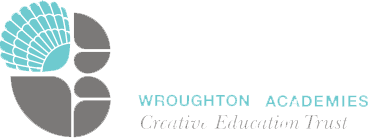

British Values
Promoting British values
Wroughton Academies is committed to serving its community and recognises the multi-cultural, multi faith and ever-changing nature of the United Kingdom. It follows equal opportunities guidance, which guarantees that there will be no discrimination against any individual or group, regardless of faith, ethnicity, gender, sexuality, political or financial status, or similar. Wroughton Academies is dedicated to preparing students for their next stage of education and ensuring that it promotes and reinforces British values to all its pupils.
The five British Values are:
- Democracy
- The rule of law
- Individual liberty
- Mutual respect
- Tolerance of those of different faiths and beliefs
At Wroughton, we have some specific lessons and assemblies to teach children British Values, but they are included in everything that we do.
Democracy: At Wroughton Academies, we value and respect the rights of the individual. Each year the children decide upon their class rules and the rights associated with these. Our children are taught to:
- Understand and respect the democratic process.
- Understand how they can influence decision making through a democratic process.
- Argue and defend a point of view.
- Make choices and decisions.
- Choose their own materials and resources.
- Discuss solutions for challenges.
- Talk about topical issues in smaller and larger groups.
- Contribute to the life of the class and school.
- Listen to and respect the different opinions of others.
- Offer simple ideas and opinions about real school issues.
- Be confident to try new activities, initiate ideas and speak to a familiar group.
- Understand the importance of teamwork.
The Rule of Law: The importance of laws, whether they govern the class, the school, or the country, are consistently reinforced throughout regular school days, as well as when dealing with behaviour and through school assemblies. Pupils are taught the value and reasons behind laws, that they govern and protect us, the responsibilities that this involves and the consequences when laws are broken. Our children are taught to:
- Recognise the differences between right and wrong and apply this to their own lives.
- Recognise and understand their feelings and behaviours.
- Name and accept responsibility for their behaviour.
- Understand the consequences of their behaviour and actions.
- Resolve conflicts effectively.
- Understand that living under the rule of law protects them and is essential for their well-being and safety.
- Recognise the difference between right and wrong and demonstrate this in their play and learning.
- Understand how they can contribute positively to the lives of those living and working in the locality and society more widely.
Individual Liberty: Within our school, children are actively encouraged to make choices, knowing that they are in a safe and supportive environment. As a school, we educate and provide boundaries for young children to make choices safely, through our provision of a safe and purposeful environment. Our children are taught to:
- Know about different groups they belong to and the important people and roles within them.
- Develop a sense of responsibility and set personal targets.
- Offer simple ideas or opinions about real issues.
- Begin to understand the rights and responsibilities of children. Have a developing awareness of their own needs, views and feelings and be sensitive to the needs, views and feelings of others.
- Understand their rights and responsibilities.
- Achieve things for themselves as opposed to for adult praise.
- Recognise and share their success.
Mutual Respect and Tolerance: Mutual Respect and tolerance are at the heart of our values and each person is respected and valued equally without regard to ability, gender, faith, heritage or race. Children learn that their behaviours have an effect on their own rights and those of others. All members of the school community treat each other with respect. Our children learn to:
- Make choices, knowing that they are in a safe and supportive environment to enable them to do this.
- Respect each other for the choices they make.
- Develop as independent thinkers through asking and answering questions.
- Disagree and still be friends.
- Share and take turns.
- Draw upon experiences from home and outside of school.
- Explore resources that celebrate diversity.
- Respect and celebrate similarities and difference.
- Develop their understanding of different culture, religions and traditions.
- Have a positive self-image and show that they are comfortable with themselves.
- See themselves as part of a much wider world, which includes blended families, disabilities, other religions and cultures.


